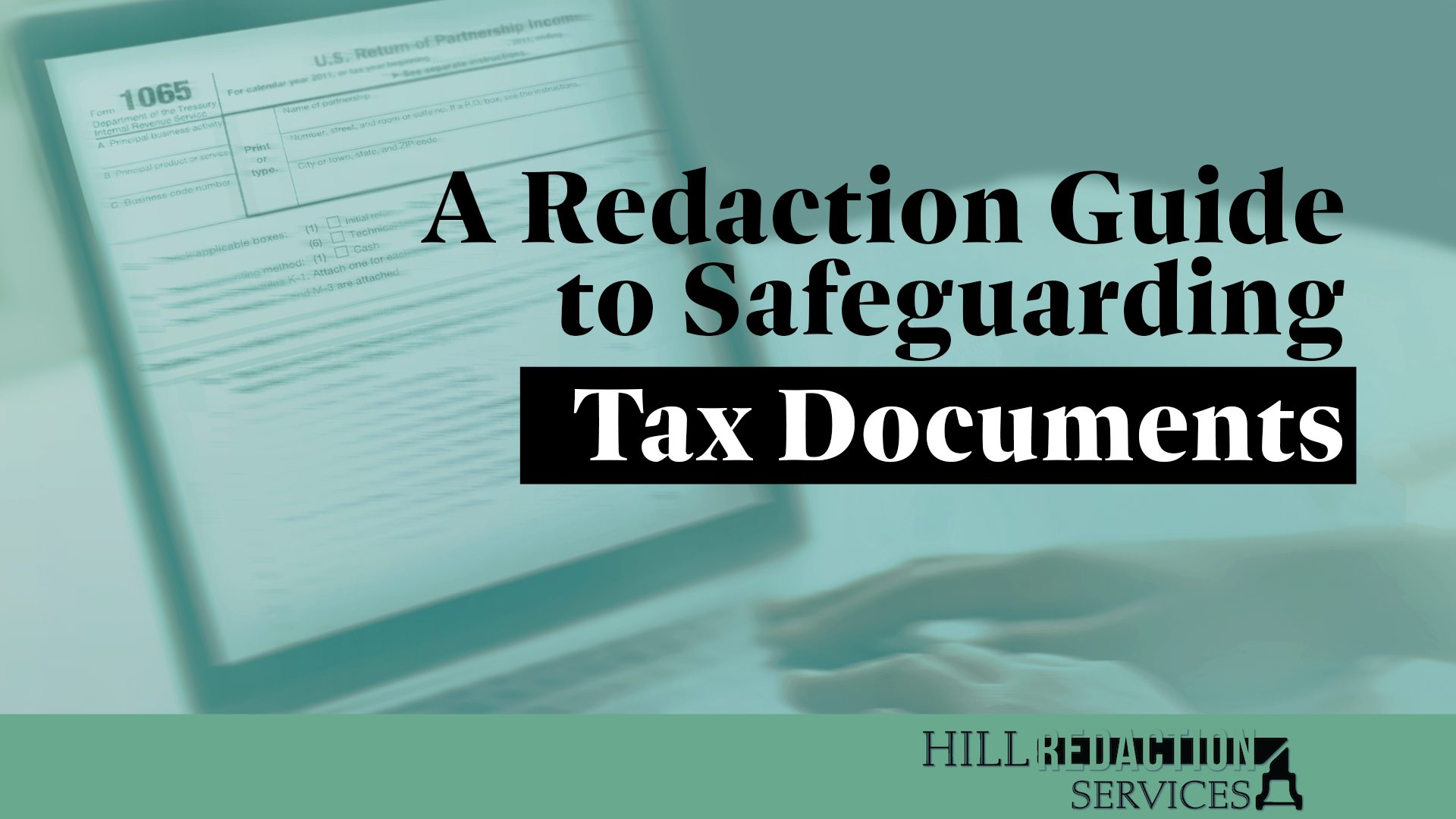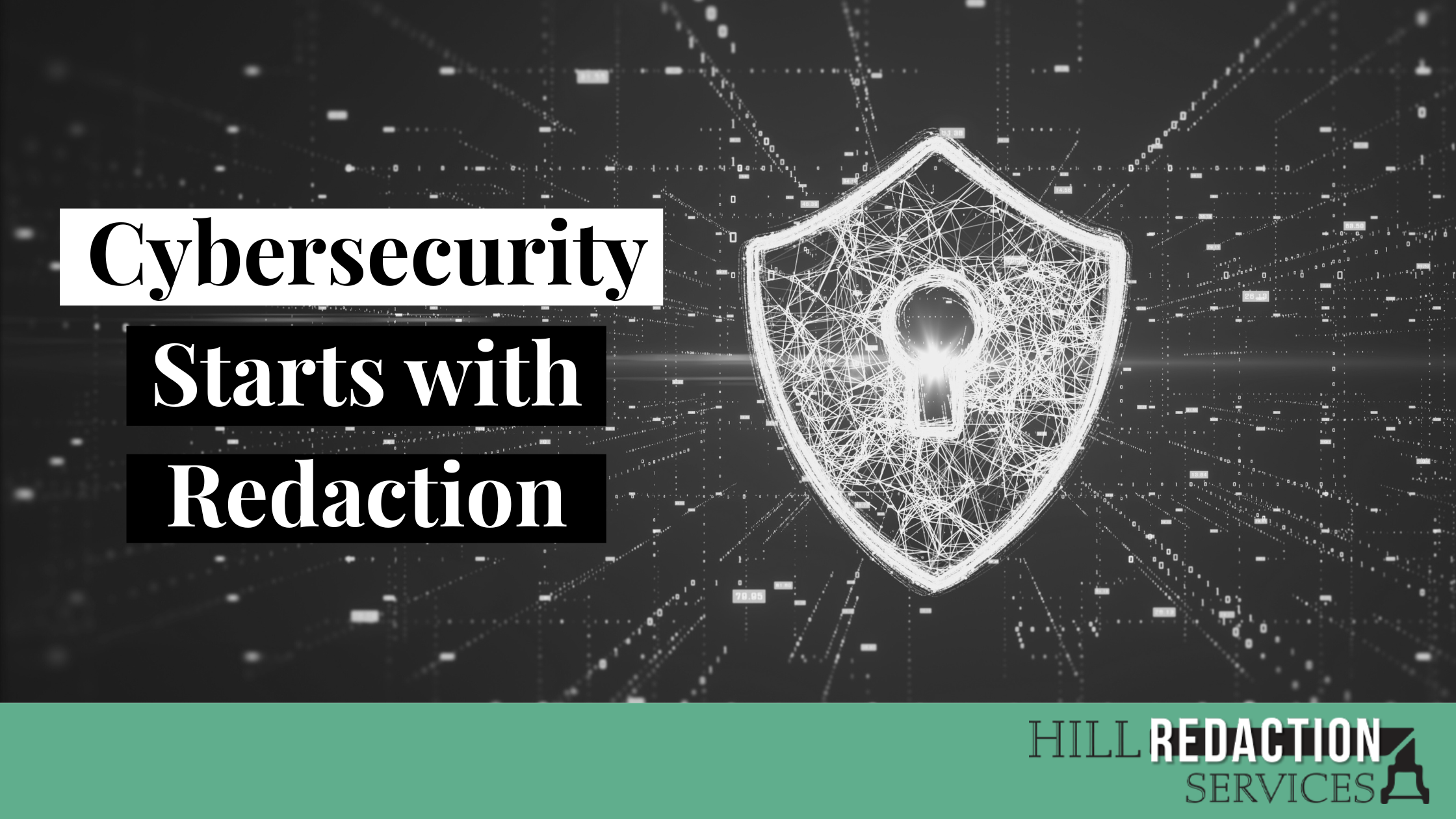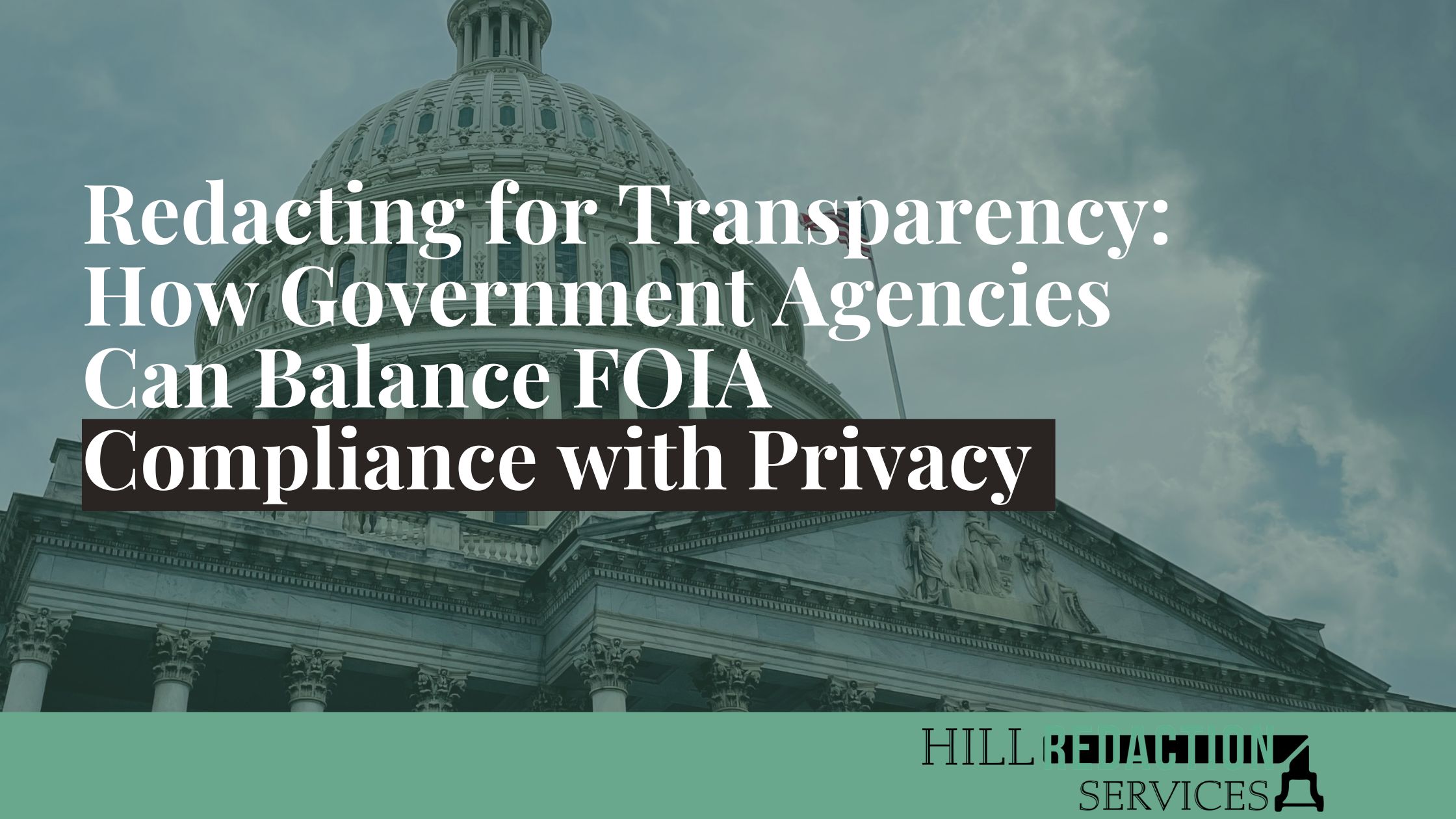
A Redaction Guide to Safeguarding Tax Documents
Tax documents can contain personally identifiable information (PII) and commercially confidential information (CCI). This means they require an additional layer of security to prevent identity theft and maintain compliance with privacy laws.
Proper Redaction Means Always Having to Follow the Regulations
Regulations like the Privacy Act of 1974, GDPR, and CPRA require meticulous handling of sensitive data, whether documents are shared locally or internationally.
The Contingencies for Redaction
Working with Tax Professionals
Sensitive details like bank account numbers may need to be redacted before sharing tax documents with a preparer or accountant. Conversely, professionals may redact their PTINs before sharing prepared documents.
For Public Filings
During document processing for Freedom of Information Act (FOIA) requests or public disclosure, elements such as a CRC32—commonly used internally for data integrity checks—would be removed before release.
Within Your Organization
Even sharing or storing unredacted documents internally can be risky. Data pseudonymization for information such as Social Security numbers or FEIN/EIN prevents sensitive data leaks.
In Legal Proceedings
Evidence submissions for court filings often call for redaction to protect personal identifiers or trade secrets, such as a company’s entity or financial data not relevant to the case.
The Solution? Redaction, Hill Redaction Services
Forms like the 1040 for federal tax returns or state tax returns can contain Social Security numbers, addresses, and details for you, your spouse, and dependents. Likewise, forms like the 8825 or K-1 include addresses, contact details, financial data, and EINs. Working with a trusted tax document redaction company ensures careful redaction and masking of these details to safeguard CCI and protect stakeholders from unnecessary exposure before sharing with unauthorized parties or filing. Call or fill out our form to get started.
Related Posts

A Redaction Guide to Safeguarding Tax Documents
Tax documents can contain personally identifiable information (PII) and commercially confidential information (CCI). This means they require an additional layer of security to prevent identity theft and maintain compliance with privacy laws.
Proper Redaction Means Always Having to Follow the Regulations
Regulations like the Privacy Act of 1974, GDPR, and CPRA require meticulous handling of sensitive data, whether documents are shared locally or internationally.
The Contingencies for Redaction
Working with Tax Professionals
Sensitive details like bank account numbers may need to be redacted before sharing tax documents with a preparer or accountant. Conversely, professionals may redact their PTINs before sharing prepared documents.
For Public Filings
During document processing for Freedom of Information Act (FOIA) requests or public disclosure, elements such as a CRC32—commonly used internally for data integrity checks—would be removed before release.
Within Your Organization
Even sharing or storing unredacted documents internally can be risky. Data pseudonymization for information such as Social Security numbers or FEIN/EIN prevents sensitive data leaks.
In Legal Proceedings
Evidence submissions for court filings often call for redaction to protect personal identifiers or trade secrets, such as a company’s entity or financial data not relevant to the case.
The Solution? Redaction, Hill Redaction Services
Forms like the 1040 for federal tax returns or state tax returns can contain Social Security numbers, addresses, and details for you, your spouse, and dependents. Likewise, forms like the 8825 or K-1 include addresses, contact details, financial data, and EINs. Working with a trusted tax document redaction company ensures careful redaction and masking of these details to safeguard CCI and protect stakeholders from unnecessary exposure before sharing with unauthorized parties or filing. Call or fill out our form to get started.






